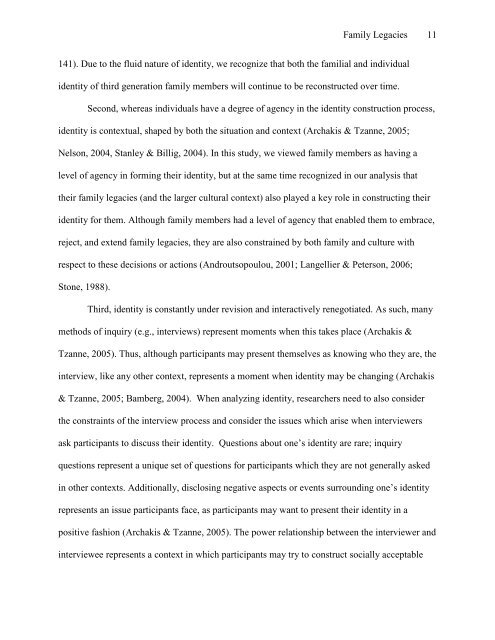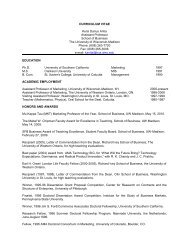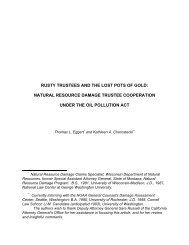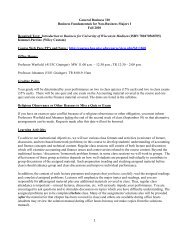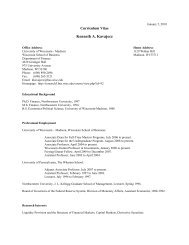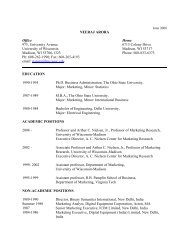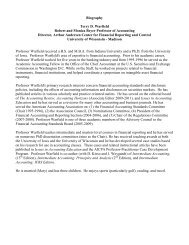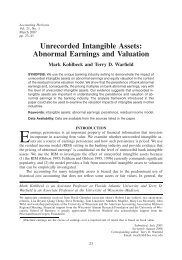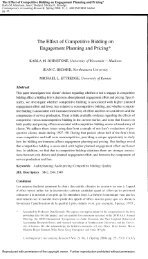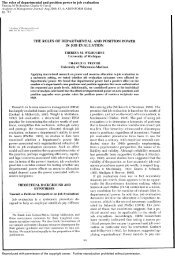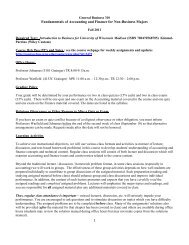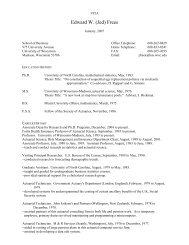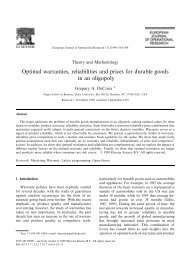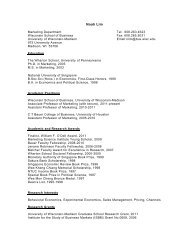family legacies - Wisconsin School of Business - University of ...
family legacies - Wisconsin School of Business - University of ...
family legacies - Wisconsin School of Business - University of ...
Create successful ePaper yourself
Turn your PDF publications into a flip-book with our unique Google optimized e-Paper software.
Family Legacies<br />
141). Due to the fluid nature <strong>of</strong> identity, we recognize that both the familial and individual<br />
identity <strong>of</strong> third generation <strong>family</strong> members will continue to be reconstructed over time.<br />
Second, whereas individuals have a degree <strong>of</strong> agency in the identity construction process,<br />
identity is contextual, shaped by both the situation and context (Archakis & Tzanne, 2005;<br />
Nelson, 2004, Stanley & Billig, 2004). In this study, we viewed <strong>family</strong> members as having a<br />
level <strong>of</strong> agency in forming their identity, but at the same time recognized in our analysis that<br />
their <strong>family</strong> <strong>legacies</strong> (and the larger cultural context) also played a key role in constructing their<br />
identity for them. Although <strong>family</strong> members had a level <strong>of</strong> agency that enabled them to embrace,<br />
reject, and extend <strong>family</strong> <strong>legacies</strong>, they are also constrained by both <strong>family</strong> and culture with<br />
respect to these decisions or actions (Androutsopoulou, 2001; Langellier & Peterson, 2006;<br />
Stone, 1988).<br />
Third, identity is constantly under revision and interactively renegotiated. As such, many<br />
methods <strong>of</strong> inquiry (e.g., interviews) represent moments when this takes place (Archakis &<br />
Tzanne, 2005). Thus, although participants may present themselves as knowing who they are, the<br />
interview, like any other context, represents a moment when identity may be changing (Archakis<br />
& Tzanne, 2005; Bamberg, 2004). When analyzing identity, researchers need to also consider<br />
the constraints <strong>of</strong> the interview process and consider the issues which arise when interviewers<br />
ask participants to discuss their identity. Questions about one’s identity are rare; inquiry<br />
questions represent a unique set <strong>of</strong> questions for participants which they are not generally asked<br />
in other contexts. Additionally, disclosing negative aspects or events surrounding one’s identity<br />
represents an issue participants face, as participants may want to present their identity in a<br />
positive fashion (Archakis & Tzanne, 2005). The power relationship between the interviewer and<br />
interviewee represents a context in which participants may try to construct socially acceptable<br />
11


